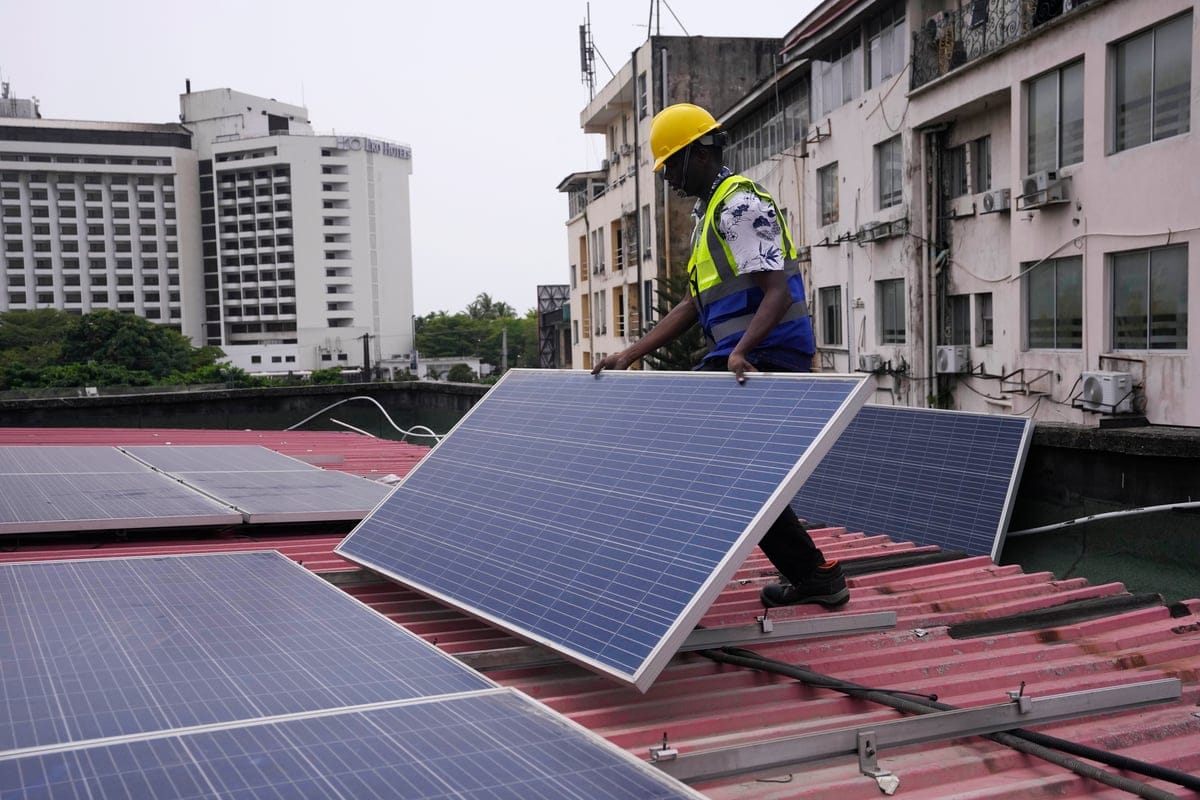More money is going to African climate startups, but a huge funding gap remains

Source: The New Indian Express
Author: Associated Press
NAIROBI: When Ademola Adesina founded a startup to provide solar and battery-based power subscription packages to individuals and businesses in Nigeria in 2015, it was a lot harder to raise money than it is today.
Climate tech was new in Africa, the continent was a fledgling destination for venture capital money, there were fewer funders to approach and less money was available, he said.
It took him a year of "running around and scouring" his networks to raise his first amount -- just under $1 million -- from VC firms and other sources. "Everything was a learning experience," he said.
But the ecosystem has since changed, and Adesina's Rensource Energy has raised about $30 million over the years, mostly from VC firms.
Funding for climate tech startups in Africa from the private sector is growing, with businesses raising more than $3.4 billion since 2019. But there's still a long way to go, with the continent requiring $277 billion annually to meet its climate goals for 2030.
Experts say to unlock financing and fill this gap, African countries need to address risks like currency instability that they say reduce investor appetite, while investors need to expand their scope of interest to more climate sectors like flood protection, disaster management and heat management, and to use diverse funding methods.
Still, the investment numbers for the climate tech sector -- which includes businesses in renewable energy, carbon removal, land restoration and water and waste management -- are compelling: Last year, climate tech startups on the continent raised $1.04 billion, a 9% increase from the previous year and triple what they raised in 2019, according to the funding database Africa: The Big Deal. That was despite a decline in the amount of money raised by all startups in total on the continent last year.
That matters because climate tech requires experimentation, and VC firms that provide money to nascent businesses are playing an essential role by giving climate tech startups risk capital, said Adesina. "In the climate space, a lot of things are uncertain," he said.
The money raised by climate tech startups last year was more than a third of all funds raised by startups in Africa in 2023, placing climate tech second to fintech, a more mature sector.
Venture capital is typically given to businesses with substantial risk but great long-term growth potential. Startups use it to expand into new markets and to get products and services on the market.
Venture capitalists "can take risks that other people cannot take, because our business model is designed to have failures," said Brian Odhiambo, a Lagos-based partner at Novastar Ventures, an Africa-focused investor. "Not everything has to succeed. But some will, and those that do will succeed in a massive way."
That was the case for Adetayo Bamiduro, co-founder of Metro Africa Xpress, which makes electric two- and three-wheelers and electric vehicle infrastructure in Nigeria and has raised just under $100 million since it was founded in 2015.
Adetayo said venture capitalists "are playing a catalytic role that is extremely essential."
"We all know that in order to really decarbonize our economies, investments have to be made. And it's not trivial investment," he said.
The funds can also bridge the gap between traditional and non-traditional sectors, said Kidus Asfaw, co-founder and CEO of Kubik, a startup that turns difficult-to-recycle plastic waste into durable, low-carbon building material. His company, which operates in Kenya and Ethiopia, has raised around $4.6 million since it was launched in 2021.
He cites waste management and construction as examples of traditional sectors that can connect with startups like his.
"There's so much innovation in these spaces that can transform them over time," he said. "VCs are accelerating that pathway to transforming them."
Besides venture capital, other investments by private equity firms, syndicates, venture builders, grant providers and other financial institutions are actively financing climate initiatives on the continent.
But private sector financing in general lags far behind that of public financing, which includes funds from governments, multilaterals and development finance institutions.



